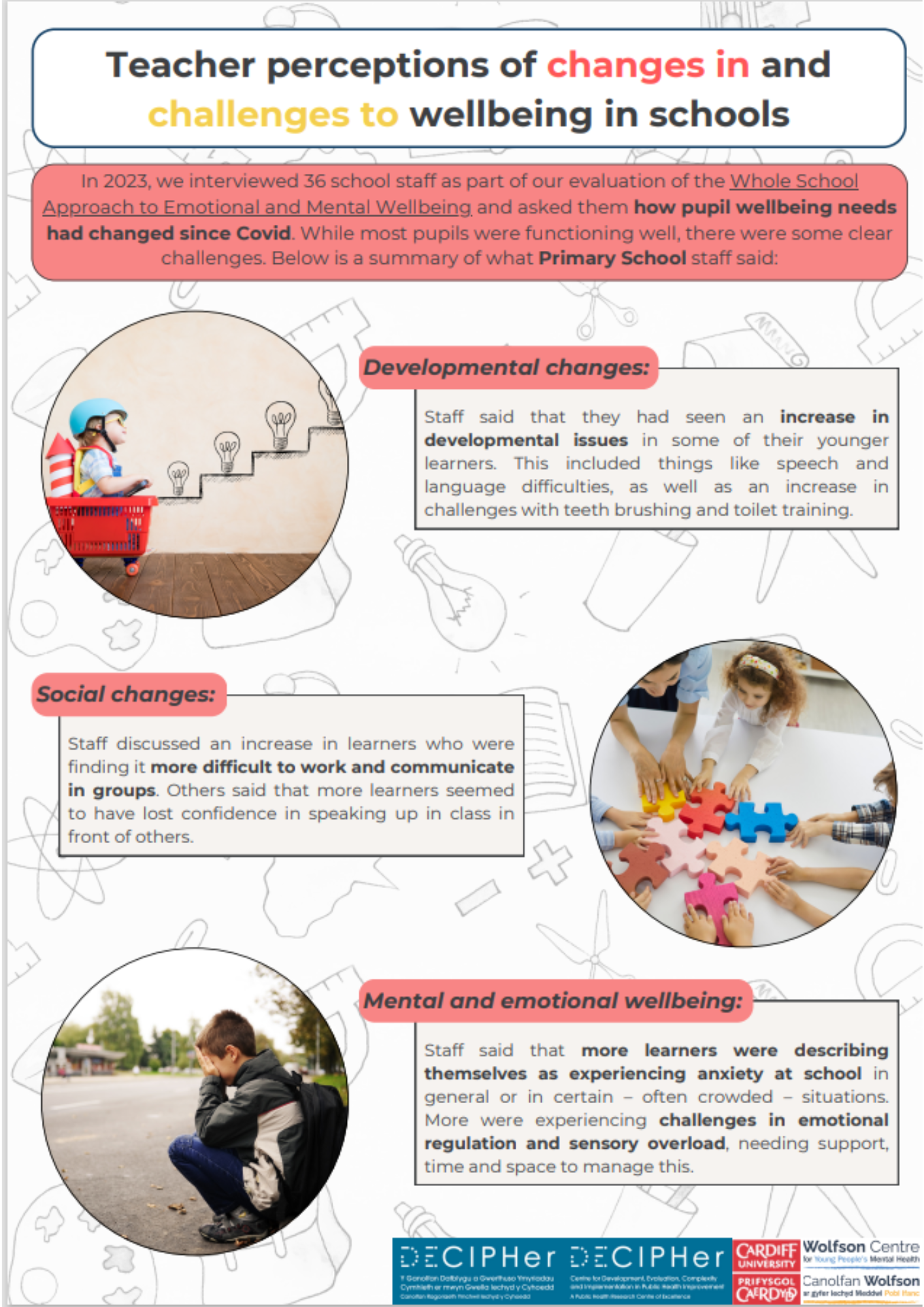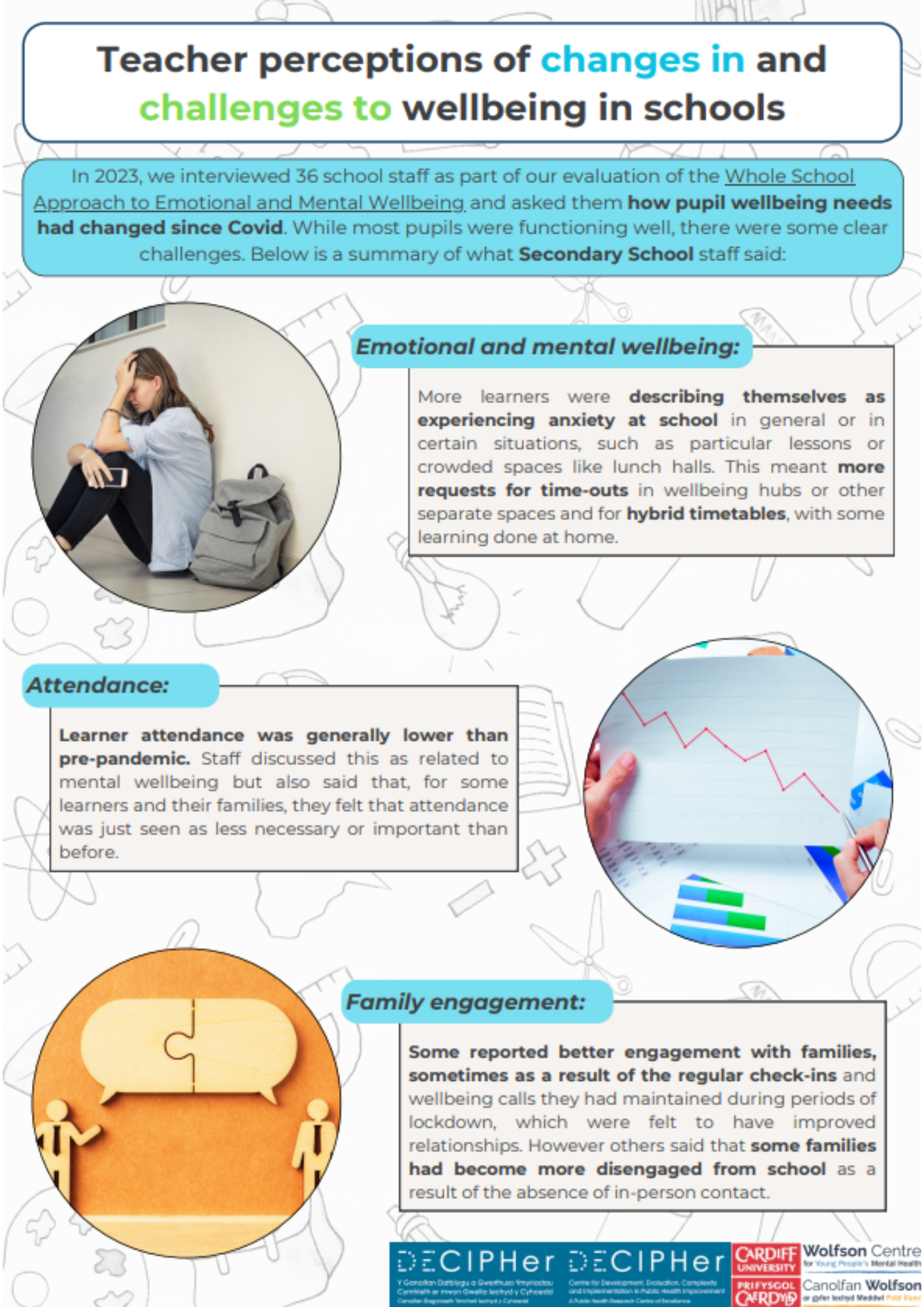
As part of their evaluation of the whole-school approach to emotional
and mental wellbeing, DECIPHer researchers asked
teachers about wellbeing in schools
In 2021, Welsh Government issued the Framework embedding a whole-school approach to emotional and mental wellbeing as statutory guidance for schools. DECIPHer researchers working in the Wolfson Centre for Young People’s Mental Health are evaluating this Framework, in a study set to run from August 2022 to Spring 2026.
As part of this evaluation, in 2023, researchers spoke with pupils and asked them to create posters around the topic of feeling ‘safe’ in their schools. The posters were published in February 2024 and can be viewed here: Safe as… schools? Where and with whom do pupils feel most secure?
Next on the list were interviews with teachers. In 2023, researchers interviewed 36 primary and secondary school staff and asked them how pupil wellbeing needs had changed since Covid. While most pupils were functioning well, there were some clear challenges. The posters summarise what the staff said and can be read below. Key points are:
Primary teachers
- Staff said that they had seen an increase in developmental issues in some of their younger learners.
- Staff discussed an increase in learners who were finding it more difficult to work and communicate in groups.
- More learners were describing themselves as experiencing anxiety at school.
- More were experiencing challenges in emotional regulation and sensory overload.
- Some schools are creating ‘safe’ or quiet spaces for children but this was often a challenge due to lack of funds
and/or space. - Some staff were concerned over not having training to deal with more complex issues, i.e. mental health.
- Lack of time; teaching assistants having to deal with more complex issues; and managing competing agendas were
cited as issues.
Secondary teachers
- More learners were describing themselves as experiencing anxiety.
- Learner attendance was generally lower than pre-pandemic.
- Some reported better engagement with families, sometimes as a result of the regular check-ins and wellbeing calls they had maintained during periods of lockdown. However others said that some families had become more disengaged.
- Finding space for learners who needed time out of the class situation; lack of time and competing agendas were
viewed as challenges. - Some staff were concerned over not having training to deal with more complex issues.
- There were concerns over increases in expectations of both learners and families over what schools were able to ‘fix’.
Chief Researcher Dr Rachel Brown commented:

‘Our conversations with school staff across Wales highlighted their perceptions of the long-term impacts of the Covid-19 pandemic on schools. This included changes observed in learner development and mental wellbeing but also ongoing issues for school systems in terms of staff wellbeing and retention and the challenges of delivering significant reforms.
It was notable how many schools go above and beyond in order to meet the needs of their learners and to support their wellbeing, and these summaries highlight the financial and emotional cost of this to schools and individual staff.
Going forwards, we will be analysing our second round of interview data with the same schools to see what has changed, how they’re delivering on policy initiatives including the WSA, and ongoing issues impacting learner wellbeing.’
Further reading
Safe as… schools? Where and with whom do pupils feel most secure?
Welsh Government Framework on Embedding a Whole School Approach to Emotional and Mental Wellbeing
Blog: Taking a whole-school approach to mental health in Wales


